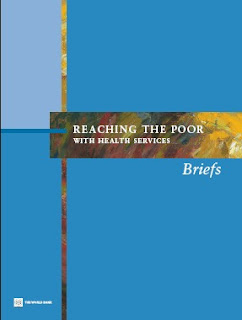&
The United Nations Association of the National Capital Area, World
Bank MENA Vice Presidency, UNDP-USA, and the Embassy of the Kingdom
of Morocco
Cordially invite you to an evening of inspiration
|-------------------+----------------------------------------------|
| | |
| | |
| | Young People and the UN MDGs in the Middle |
| (Embedded | East and North Africa: Making the MDGs a |
| image moved to | Reality |
| file: | Case Study of Morocco |
| pic14214.jpg) | |
| | It is crucial to invest in young people if |
| | we are to achieve the Millennium |
| | Development Goals. The World Bank |
| | Development Report 2007: Development and |
| | the Next Generation states that people |
| | under age 25 make up around 51% of the |
| | combined populations of developing and |
| | least developed countries. In the Arab |
| | world especially, young people - more than |
| | a half of the region?s population - are |
| | standing at the crossroads of major |
| | changes in their countries. |
| | |
| | At this event, prominent experts from the |
| | international development community will |
| | highlight the important role of young |
| | people in the development process. Young |
| | leaders, through their work and |
| | dedication, will demonstrate how youth can |
| | have a significant impact on development. |
| | Participants will gain access to |
| | information about the MDGs and learn how |
| | they can play a key role in MDGs' |
| | activities, advocacy and implementation. |
| | |
| | |
|-------------------+----------------------------------------------|
Wednesday, November 28, 2007
6:00pm
World Bank H Building, Eugene R. Black Auditorium
600, 19th street, NW, Washington, DC
Reception to follow
Note: This button will also add the event to your Lotus Notes calendar
For non bank staff, please RSVP to InfoShopevents@worldbank.org
Opening Remarks by
Daniela Gressani
Vice President, Middle East & North Africa Region, World Bank
Moderated by
Leila Hanafi
Director United Nations_NCA International Law Group
Winner of the World Bank MENA Youth Innovation Fund
Discussed by:
Elizabeth Latham
Executive Director, U.S. Committee for the United Nations Development Program
Mark Parkison
Morocco Country Director, US Agency for International Development
Presented by youth leaders:
Raj Raina
World Bank Youth Innovation Fund, Yemen
Youth 2Youth/World Bank EAP Youth Innovation Fund
Salmane Belayachi
Founder of The Moroccan World Foundation
Samantha Constant
Middle East Youth Project
Wolfensohn Center, Brookings Institution
Closing Remarks by:
H.E. Ambassador Aziz Mekouar
Aziz Mekouar became ambassador of Morocco to the United States on
June 19, 2002. Before his current assignment, Ambassador Mekouar
served as ambassador to Italy (1999-2002). He was elected
Independent Chairman of the Council of the United Nations Food and
Agriculture Organization (FAO) in November 2001 and re-elected in
2003. He had previously been appointed ambassador to Portugal
(1993-1999) and to Angola (1986-1993). Ambassador Mekouar has also
served as minister plenipotentiary at the Ministry of Foreign
Affairs and Cooperation in Morocco (1985-1986), permanent
representative of Morocco to the International Bureau for
Information Technology (1978-1985), and first counselor and deputy
chief of mission at the Embassy of Morocco in Rome (1977-1985).
________________________________________________________________________________________________________
About the InfoShop
The InfoShop is the public information center of the World Bank and
serves as a forum for substantial debate on international
development. Our extensive events program consists of more than 250
events over the past two years and has hosted many internationally
recognized speakers including Queen Noor, Francis Fukuyama, Jeffrey
Sachs, Amartya Sen, Joseph Stiglitz, Thomas Friedman, and Carly
Fiorina. The InfoShop functions as the only publicly accessible
space at headquarters and provides internal and external audiences
with over 15,000 titles published by the World Bank, international
organizations, and other publishers on development issues.
For more information, visit: www.worldbank.org/infoshop
Comments about the events program:















